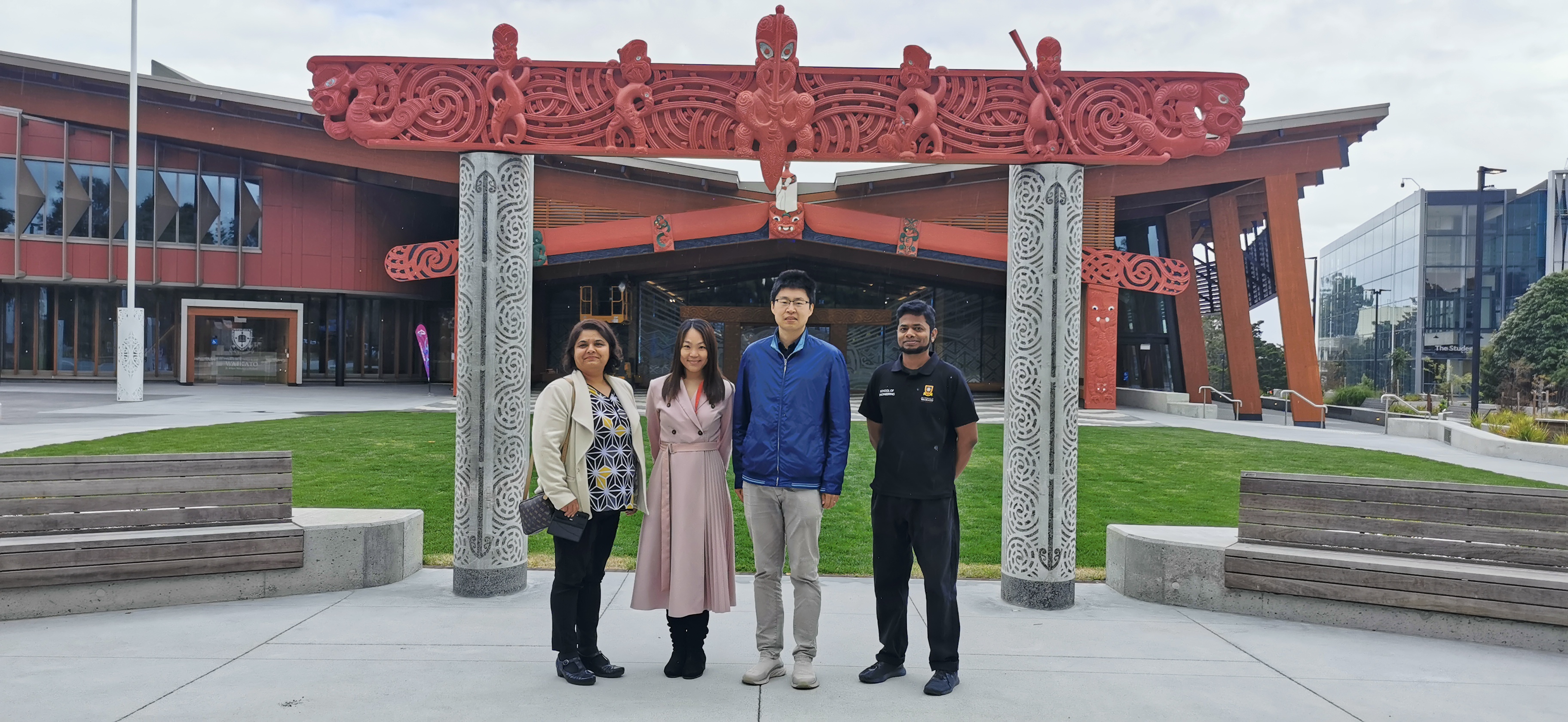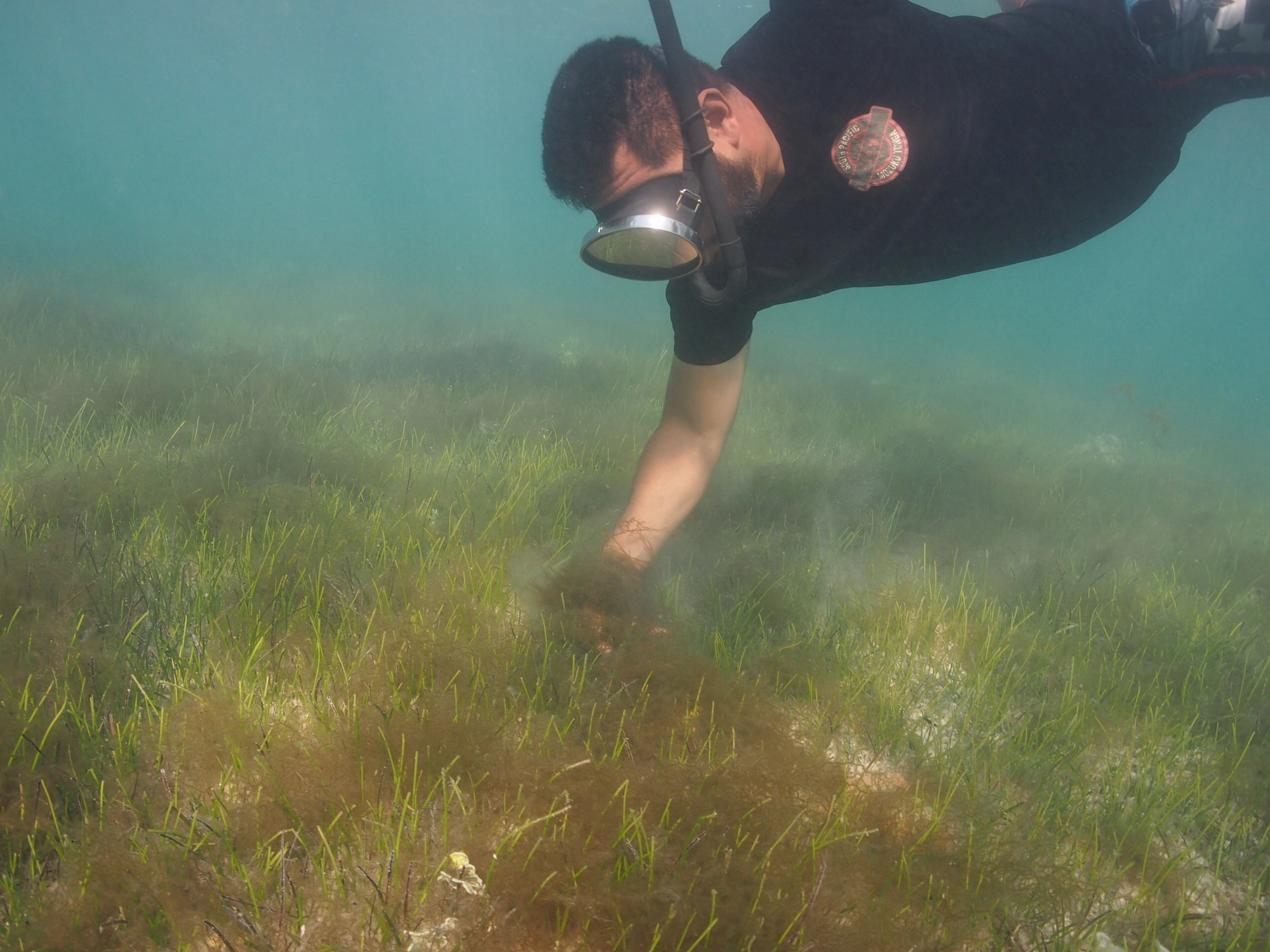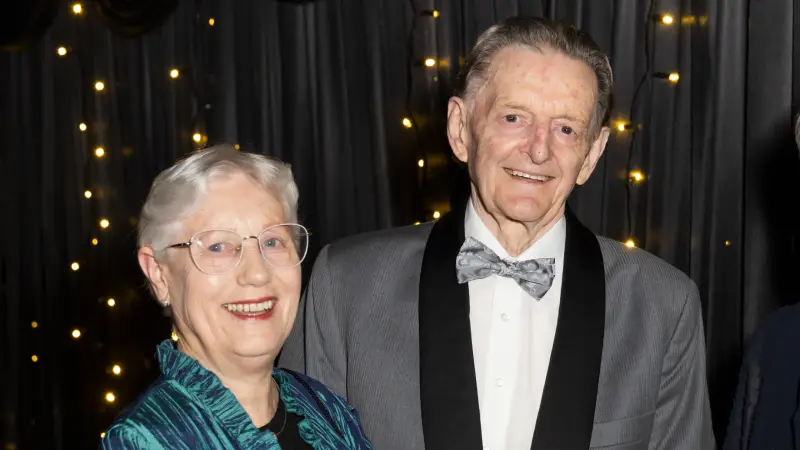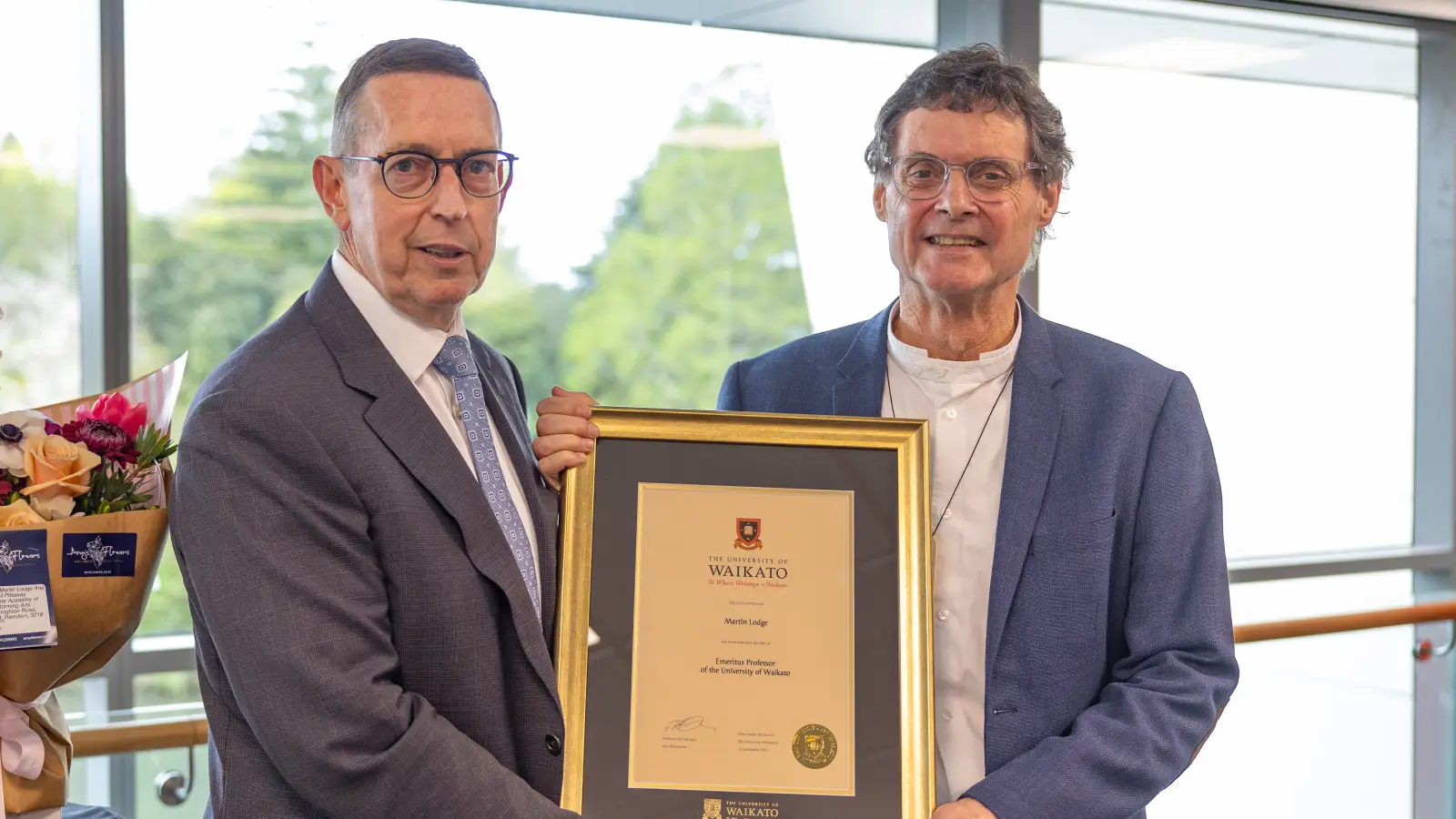Coming home to Waikato
A true Waikato girl, Tangiwai (Waikato- Ngāti Tīpā, Ngāti Āmaru, Ngāti Tahinga) started life in the back blocks of Port Waikato on a dairy farm in Waikāretu. When she was five, her parents, Tepene (Tex) and Tuahana Clark, moved their family to Ātiamuri, South Waikato.

“In Ātiamuri, near the Hatupatu rock and just behind Maunga Pohaturoa, was where our family dairy farm was. As the bus ride was really long to get into town, we three girls got sent to boarding school at Queen Victoria School for Māori Girls, and our brother went to Wesley College in Pukekohe.”
Due to limitations in attending secondary education, her parents were determined to ensure their children received the opportunity that they didn’t. This is what inspired her to want to be a teacher and apply for Teacher’s College. Tangiwai completed her teaching diploma and then continued to study to complete a Bachelor of Education at Waikato University in 1989 (Her parents since went on to complete tertiary qualifications themselves as second-chance learners).
Tangiwai’s two sisters work locally, with middle sister Vanessa Clark also working at the University of Waikato as Pouhere Kanapu (Executive Director of Kanapu), a for Māori, by Māori-led approach to growing Māori talent and leadership in the research sector. Her youngest sister, Judge Tini Clark, is based at the Hamilton District Court. Her brother lives at home with their mother since their father passed away four years ago.

Learning to lead, leading others in mātauranga Māori
Tangiwai’s first teaching role in the bilingual unit at Forest Lake Primary School was where she completed her registration from 1990-1993. It was also where one of the parents asked if Tangiwai could start a Kura Kaupapa Māori (total immersion school).
“After my two years, I went to start Whakawātea, but in those days, you didn't always have funding from the Government to start schools. Following on from this, I took on the Foundation Tumuaki (Principal) role at Tōku Māpihi Maurea Kura Kaupapa Māori, which had, by then, procured government funding status.”
After five years at Tōku Māpihi Maurea Kura Kaupapa Māori, Tangiwai, at the request of her iwi, went to work for the Ministry of Education in 2000 as a Māori Liaison Officer, helping advise and support opening other kura kaupapa across the Waikato. Then, in 2001, she was appointed the Pouherenga Mātauranga, Iwi Relationships Officer, negotiating partnerships on behalf of the Ministry for the Central North region.
Tangiwai then moved to Dunedin with her whānau, where she took a short stint as a Policy Analyst for the Ministry while beginning her Master of Indigenous Studies. In 2003, she became the Team Leader for Schools and Early Childhood Education in the Otago/Southland region. In May 2006, she took up the Acting Senior Manager position for Whakaaro Mātauranga, managing a national team encouraging students to stay in school longer. She continued this role in a permanent capacity from September 2006 until April 2008.
Finding the ongoing travel as part of the Ministry trying, along with extended periods away from her whānau, Tangiwai decided to return to Dunedin and study for her PhD. The University of Otago encouraged her to apply for a senior lecturership in Māori education while studying, which she won from April 2008, where she then worked alongside ‘her darling’ in Te Tumu (School of Māori, Pacific and Indigenous Studies), University of Otago for 12 years.
“I'd have to say it was a dream job. The papers I taught were tailored around my own experiences because when it comes to education, you name it, I've covered the whole width and breadth of the education system, from setting up schools, to teaching across most levels, to writing policy, to licensing and implementation.”
Tangiwai completed her PhD in 2018, which examined how you learn; role modelling, learning by exposure, looking and listening, and through intergenerational knowledge transmission (the context related to key roles carried out on marae when hosting Kīngitanga events of koroneihana, poukai and rīkata).
Post-Covid-19 pandemic and a move to Wellington in 2021, Tangiwai spent 12 months as Chief Advisor at the Ministry of Education in the Secondary School sector. Most recently, she has been Manager of Customary Fisheries for the Ministry of Primary Industries for 16 months, supporting iwi access to information and resources to enable more sustainable management of their customary fisheries.
Tangiwai says the whakataukī from Tainui mareikura Te Puea Herangi exemplifies how she tries to live her life, “Mahia te mahi hei painga mō te iwi,” striving to work for the betterment of others.

A collective vision, looking to the faculty’s beginnings for inspiration
Returning to Waikato as Te Amokapua (Dean), Tangiwai sees “blue skies and green grass”. Her vision for the faculty is collective, recognising and acknowledging each team member’s strengths.
“I'm excited to meet the staff, to sit, listen and see what everybody has in their kete. Then collectively, we can see the diversity of what we have to offer and contemplate what else we may want to consider.”
“Together, we're on one waka, but we have different types of paddlers. Everyone's got different strengths to bring. Importantly, we all must visualise the same destination and paddle in unison to make sure that the waka goes the way we want it to go and be aware of the differences we all bring to ensure we move towards that landing.”
“There will be awesome things already happening; why would you change that? But then what other opportunities present?”
Tangiwai wants to make sure the Faculty’s tohu (logo), along with the whakataukī, is displayed and is central to who the Faculty is and how it operates.
“In addition, we’ve got so many rich whakataukī from the Kīngitanga that we talk about all the time, and this, Te Pua Wānanga ki te Ao, the school’s own whakataukī, is important. It talks about the puawānanga, the clematis plant.”
“The stamen represented by the tāniko borders to me is the most important part because it holds the promise for future generations and new development.”
“This is relevant, even 30 years later, and is where we need to draw inspiration for the future. I hope that together, we can rediscover our past. Because there’s the saying, I reflect on the past as the waypoint from which we have come, which anchors where we go in the future.

Here to serve and search for pathways
Tangiwai looks forward to serving students from Māori, Pacific and other Indigenous backgrounds. At Otago, Tangiwai was Associate Dean Māori for a time, and because of this role, she had the opportunity to look at how to better support Pacific students (who were also looked after under this position) in addition to Māori. Tangiwai was sent to Samoa to observe and reflect on their cultural norms and ways of being.
“I learnt a lot, especially about how often our Western timeframes aren’t particularly sympathetic to other cultures, particularly Pacific cultures. Family obligations come first, and this can mean that otherwise high achieving students can suddenly drop off the radar because of a sudden call to come back home.”
“It is cultural differences like this that don’t always align with academic timeframes and other perceived barriers that I am aware of coming into this role. How we accommodate our cultural differences is important so there are wins for everybody.”

A message for students
Working alongside students, a great joy for Tangiwai is seeing students graduate, many of whom have struggled to get there and, against all odds, are still the first in their families to receive a tertiary qualification.
Tangiwai advises students not to be afraid of going after their goals and to foster a healthy self-belief in their own abilities, to ask for help, and to listen to those encouraging voices around them.
“If you have a desire to do something, then just make sure you persevere and go and do it until you achieve what you want to do. It doesn't matter your background or circumstances, there's always hope.”
“Seek advice because usually, in the first couple of years, people don’t know what they want to do, and trying to please everybody else is not going to have any traction. Be true to yourself, and do you. E oi i a koe.”
A message to our iwi
I am always thankful for the support of my iwi. I now come home to reciprocate the support that has always been here throughout the years in every vocation I have undertaken.
Hei aha? Hei painga mō te whānau, mō ngā hapū, tae atu ki ngā iwi whānui o te motu.
Ka mihi rā te ngākau.



